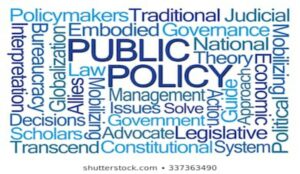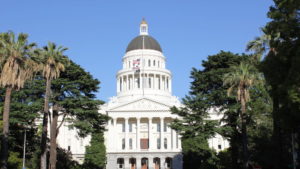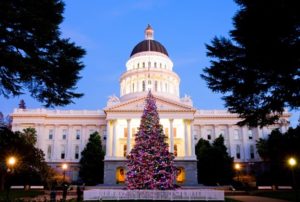2021-22 Legislative Session Closes with Big Wins for AAUW California By Kathi Harper
Note: Kathi Harper is the Chair of the AAUW California Public Policy Committee
At the stroke of midnight on Sept. 30, 2022, the 2021-22 legislative session officially came to a close as it marked the Governor’s deadline for signing or vetoing bills. The AAUW California Public Policy committee is pleased to announce that we achieved a 70 percent success rate on the bills on our legislative agenda, and 25 of our 36 bills are now law, including seven of our eight top priority bills. The following is a brief synopsis, by each pillar of our Public Policy Priorities:
Economic Security for All Women
Eight of our bills were signed by the Governor, one was vetoed, and one died in the Legislature. The most significant bill under this pillar was AB (Assembly Bill) 92, which we co-sponsored. AB 92 was introduced in 2020, and became a 2-year bill, which is why it remained on this year’s agenda. This bill originally sought a 1-year waiver of supplemental child-care fees for low-income families, with a request for a sliding scale to be applied thereafter. In his 2021 budget, Gov. Newsom included $120 million for two years’ worth of waivers. The bill was then amended to request an additional year of waivers through October 2024, with a sliding scale to then be implemented. Unfortunately, the amended bill was vetoed; however, we are still proud of the work we did to get those two years of waivers in the budget, so we still consider it a win!
Equal Access to Quality Public Education for All Students
Six of these bills were signed by the Governor, one was vetoed, one was approved by the Legislature (no signature required) and two died in the Legislature. Of particular note under this pillar are three of our top priority bills: AB 1968, which requires campuses to develop and post uniform guidelines for reporting sexual assault; AB 2881 which provides additional support for college students with dependent children; and AJR 23 (Assembly Joint Resolution), a Title IX 50th Anniversary Proclamation.
Social and Racial Justice for All Members of Society
Eight of these bills were signed by the Governor, one was vetoed, one was incorporated by the Governor into an Executive Order, one was approved by and two died in the Legislature. We saw success on all four of our top priority bills in this area: AB 1666, which provides protection for those from other states seeking abortions in California, as well as for those providing services here, from the enforcement of a related civil judgment from their home state; SB (Senate Bill) 523, which requires insurance coverage for over-the-counter contraceptive products; SB 1375, which allows certified nurse-practitioners to perform some early-term abortions; and SCA (Senate Constitutional Amendment) 10. SCA 10 was introduced in the Senate as a measure to place a constitutional amendment on the November ballot to enshrine in the California Constitution the right to an abortion and to contraception. When this measure passed in the Senate, it became Proposition 1.
To see the results of all the bills on our 2021-22 legislative agenda, check out our webpage for a full agenda summary, here: https://www.aauw-ca.org/documents/2022/10/results-of-2021-22-legislative-session.pdf/, or to view our Bill Tracker, here: https://www.aauw-ca.org/documents/2022/10/bill-tracking.pdf/.
DON’T FORGET TO REGISTER! DON’T FORGET TO VOTE!
DON’T FORGET TO TAKE THE PLEDGE TO VOTE “YES” ON PROPOSITION 1!
 States or by any State on account of sex.
States or by any State on account of sex.






